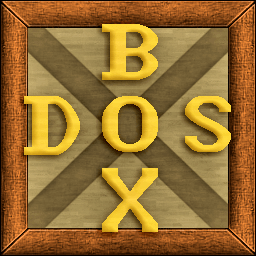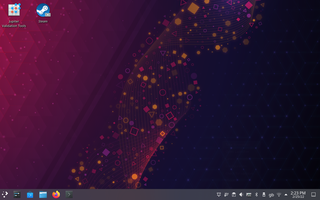
Microsoft DirectX is a collection of application programming interfaces (APIs) for handling tasks related to multimedia, especially game programming and video, on Microsoft platforms. Originally, the names of these APIs all began with "Direct", such as Direct3D, DirectDraw, DirectMusic, DirectPlay, DirectSound, and so forth. The name DirectX was coined as a shorthand term for all of these APIs and soon became the name of the collection. When Microsoft later set out to develop a gaming console, the X was used as the basis of the name Xbox to indicate that the console was based on DirectX technology. The X initial has been carried forward in the naming of APIs designed for the Xbox such as XInput and the Cross-platform Audio Creation Tool (XACT), while the DirectX pattern has been continued for Windows APIs such as Direct2D and DirectWrite.

Windows Millennium Edition, or Windows Me, is an operating system developed by Microsoft as part of its Windows 9x family of Microsoft Windows operating systems. It is the successor to Windows 98, and was released to manufacturing on June 19, 2000, and then to retail on September 14, 2000. It was Microsoft's main operating system for home users until the introduction of its successor Windows XP in 2001.

Crytek GmbH is a German video game developer and software developer based in Frankfurt. Founded by the Yerli brothers in Coburg in 1999 and moved to Frankfurt in 2006, Crytek also operates further studios in Kyiv, Ukraine and Istanbul, Turkey. Its former studios included Crytek Black Sea in Sofia, Bulgaria, Crytek UK in Nottingham, and Crytek USA in Austin, Texas. Crytek is best known for developing the first instalment of the Far Cry series and the Crysis series, and the open world nature of their games which showcase the company's CryEngine.

Steam is a video game digital distribution service and storefront by Valve. It was launched as a standalone software client in September 2003 as a way for Valve to provide automatic updates for their games, and expanded to distributing and offering third-party game publishers' titles. Steam offers various features, like digital rights management (DRM), game server matchmaking and anti-cheat measures, and social networking and game streaming services. It provides the user with automatic game updating, saved game cloud synchronization, and community features such as friends messaging, in-game chat and a community market.

DOSBox is a free and open-source emulator which runs software for MS-DOS compatible disk operating systems—primarily video games. It was first released in 2002.

GameSpy was an American provider of online multiplayer and matchmaking middleware for video games founded in 1996 by Mark Surfas. After the release of a multiplayer server browser for the game, QSpy, Surfas licensed the software under the GameSpy brand to other video game publishers through a newly established company, GameSpy Industries, which also incorporated his Planet Network of video game news and information websites, and GameSpy.com.
A personal computer game, also known as a PC game or computer game, is a type of video game played on a personal computer (PC) rather than a video game console or arcade machine. Its defining characteristics include: more diverse and user-determined gaming hardware and software; and generally greater capacity in input, processing, video and audio output. The uncoordinated nature of the PC game market, and now its lack of physical media, make precisely assessing its size difficult. In 2018, the global PC games market was valued at about $27.7 billion.

Windows Vista is a release of the Windows NT operating system developed by Microsoft. It was the direct successor to Windows XP, which was released five years before, at the time being the longest time span between successive releases of Microsoft Windows desktop operating systems. Development was completed on November 8, 2006, and over the following three months, it was released in stages to computer hardware and software manufacturers, business customers and retail channels. On January 30, 2007, it was released internationally and was made available for purchase and download from the Windows Marketplace; it is the first release of Windows to be made available through a digital distribution platform.

Windows SideShow was a feature by Microsoft introduced in Windows Vista to supply information such as e-mail, instant messages, and RSS feeds from a personal computer to a local or remote peripheral device or display. SideShow was intended to enhance the Windows experience by enabling new mobility scenarios for the Windows platform and by providing power saving benefits as part of Microsoft's broader efforts regarding a mobile initiative.
Mac gaming refers to the use of video games on Macintosh personal computers. In the 1990s, Apple computers did not attract the same level of video game development as Microsoft Windows computers due to the high popularity of Microsoft Windows and, for 3D gaming, Microsoft's DirectX technology. In recent years, the introduction of Mac OS X and support for Intel processors has eased porting of many games, including 3D games through use of OpenGL and more recently Apple's own Metal API. Virtualization technology and Boot Camp also permit the use of Windows and its games on Macintosh computers. Today, a growing number of popular games run natively on macOS, though as of early 2019, a majority still require the use of Microsoft Windows.

AMD LIVE! is the name of Advanced Micro Devices' initiative in 2005 aimed at gathering the support of professional musicians and other media producers behind its hardware products. The primary focus of this initiative was the Opteron server- and workstation-class central processing units (CPUs).
Games for Windows is a discontinued brand owned by Microsoft and introduced in 2006 to coincide with the release of the Windows Vista operating system. The brand itself represents a standardized technical certification program and online service for Windows games, bringing a measure of regulation to the PC game market in much the same way that console manufacturers regulate their platforms. The branding program was open to both first-party and third-party publishers.
The Xbox 360 is a home video game console developed by Microsoft. As the successor to the original Xbox, it is the second console in the Xbox series. It competed with Sony's PlayStation 3 and Nintendo's Wii as part of the seventh generation of video game consoles. It was officially unveiled on MTV on May 12, 2005, with detailed launch and game information announced later that month at the 2005 Electronic Entertainment Expo.

Paragon Software Group is a German software company that develops hard drive management software, low-level file system drivers and storage technologies. The Smart Handheld Device Division (SHDD) offers multilingual dictionaries, multilingual handwriting recognition, weather information, and two-way data synchronization with desktop devices.

The Xbox is a home video game console and the first installment in the Xbox series of video game consoles manufactured by Microsoft. It was released as Microsoft's first foray into the gaming console market on November 15, 2001, in North America, followed by Australia, Europe and Japan in 2002. It is classified as a sixth-generation console, competing with Sony's PlayStation 2 and Nintendo's GameCube. It was also the first major console produced by an American company since the release of the Atari Jaguar in 1993.

Kinect is a line of motion sensing input devices produced by Microsoft and first released in 2010. The devices generally contain RGB cameras, and infrared projectors and detectors that map depth through either structured light or time of flight calculations, which can in turn be used to perform real-time gesture recognition and body skeletal detection, among other capabilities. They also contain microphones that can be used for speech recognition and voice control.

Corrinne Yu is an American game programmer. She worked on games including King's Quest, Quake 2, and Halo 4. Her engine work included Unreal Engine 3, Microsoft's Direct 3D Advisory Board, and CUDA and GPU simulation at NVidia. She has also designed accelerator experiments for nuclear physics research.
Cloud gaming, sometimes called gaming on demand or gaming-as-a-service, is a type of online gaming that runs video games on remote servers and streams them directly to a user's device, or more colloquially, playing a game remotely from a cloud. It contrasts with traditional means of gaming, wherein a game runs locally on a user's video game console, personal computer, or mobile device.

SteamOS is a Linux distribution developed by Valve. It is open source with some closed source components and is the primary operating system for Steam Machines and the Steam Deck.
Universal Windows Platform (UWP) is a computing platform created by Microsoft and first introduced in Windows 10. The purpose of this platform is to help develop universal apps that run on Windows 10, Windows 10 Mobile, Windows 11, Xbox One, Xbox Series X/S and HoloLens without the need to be rewritten for each. It supports Windows app development using C++, C#, VB.NET, and XAML. The API is implemented in C++, and supported in C++, VB.NET, C#, F# and JavaScript. Designed as an extension to the Windows Runtime (WinRT) platform first introduced in Windows Server 2012 and Windows 8, UWP allows developers to create apps that will potentially run on multiple types of devices.














